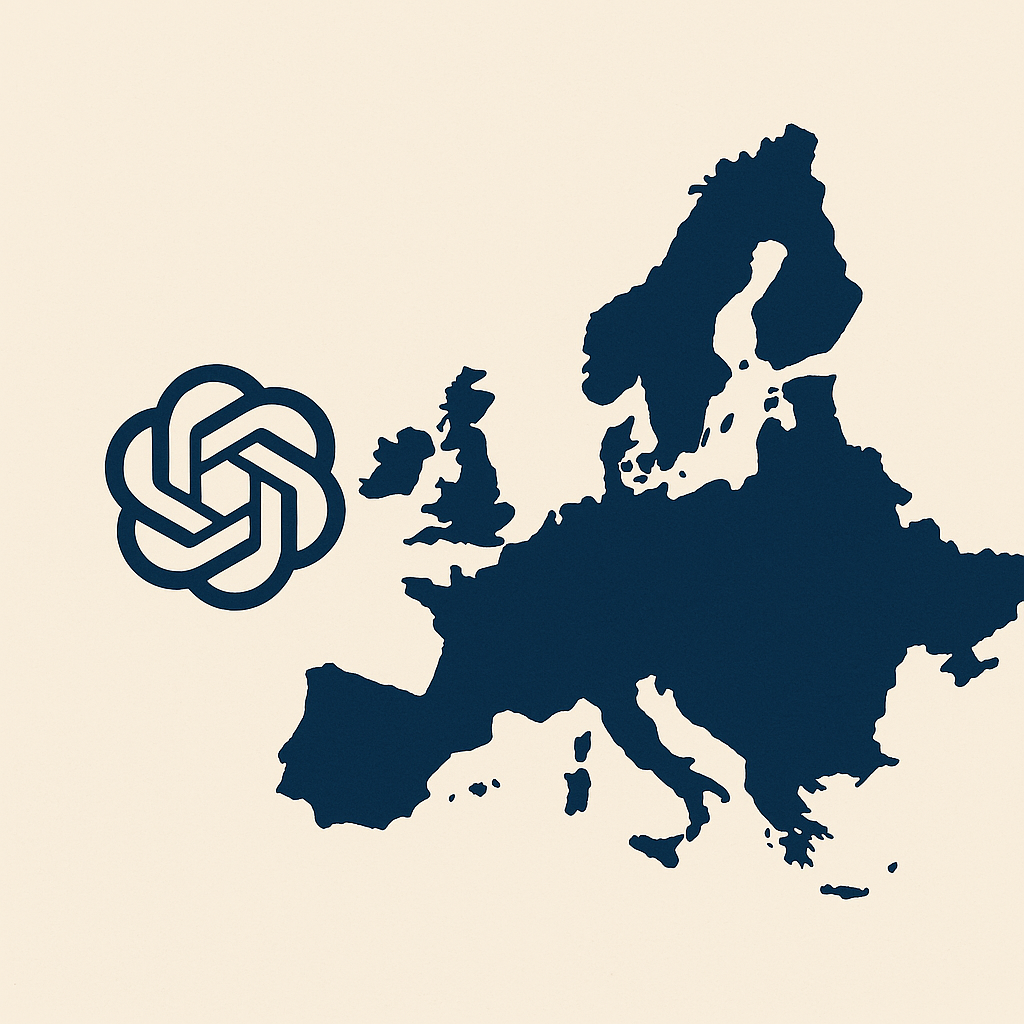
OpenAI’s newly unveiled EU Economic Blueprint is the clearest signal yet of its strategic intentions for Europe, a region it now openly courts as both market and partner in shaping the future of artificial intelligence. The proposal, presented today, outlines a four-pronged plan to ignite AI-driven economic growth across the EU, positioning OpenAI as not just a tool provider, but as a thought leader in the continent’s digital transition.
At its core, the blueprint seeks to accelerate AI integration by investing in compute infrastructure, talent development, and regulatory harmonisation. With initiatives like a €1 billion AI Accelerator Fund and the bold ambition to train “100 million AI citizens” by 2030, OpenAI aims to embed itself into Europe’s innovation fabric, from education and research to business and public services.
But while the ambition is sweeping, the approach raises essential questions for European stakeholders, particularly when it comes to trust, data sovereignty, and independence.
A Vision Wrapped in Silicon
OpenAI’s plan reads like a roadmap for AI sovereignty, yet it’s authored by a private American company, not a European institution. The document proposes strategic investment in hardware (chips), infrastructure (data and energy), and human capital (AI literacy and talent mobility). These are indeed critical to Europe’s ability to compete globally.
The inclusion of democratic values, inclusivity, and user empowerment appears designed to resonate with EU policymakers, echoing key tenets of the bloc’s digital rights framework. OpenAI frames its intentions in language that appeals to European ideals: “built responsibly,” “reflects European values,” and “trusted by users.”
A Private Solution for a Public Good?
However, the timing and tone of this blueprint suggest more than good intentions. With ChatGPT’s expansion into education systems (as seen in Estonia and Germany), and a growing European developer base already reliant on OpenAI APIs, the company is arguably formalising a footprint that’s already under construction.
What’s missing from the glossy proposals is a clear commitment to open-source transparency or decentralised data practices, hallmarks of many European-born AI alternatives. By default, data processed through OpenAI’s tools is stored and refined on its own servers, leaving European companies and institutions reliant on a private, non-European infrastructure. This stands in contrast to emerging European AI models focused on privacy, localised control, and federated learning.
Strategic Positioning or Public Partnership?
While the blueprint is branded as a collaboration, the underlying power dynamics are worth scrutiny. OpenAI’s proposed €1 billion fund, its youth initiatives, and its push for regulatory streamlining are all pitched as partnership, but they double as influence-building mechanisms. Holding policy-shaping events across Brussels, Paris, Warsaw, and Munich, the company is not just proposing solutions, it is lobbying for mindshare.
This prompts a deeper question: does Europe need external stewardship in a field where homegrown innovation is already strong but underfunded? From Hugging Face’s European expansion to sovereign AI cloud projects and national AI strategies across France, Germany, and Spain, there is a credible counterpoint to the idea that OpenAI must lead the way.
The Real Question for Europe
OpenAI’s economic blueprint may genuinely aim to benefit European citizens and institutions. But it also serves as a vehicle for embedding a proprietary, US-built AI system into Europe’s digital future.
For policymakers, the challenge is to discern where the promise of partnership ends and strategic dependence begins.
The blueprint opens a conversation. Europe must now decide who gets to shape the answers.
— AdEdge Europe Editorial Team